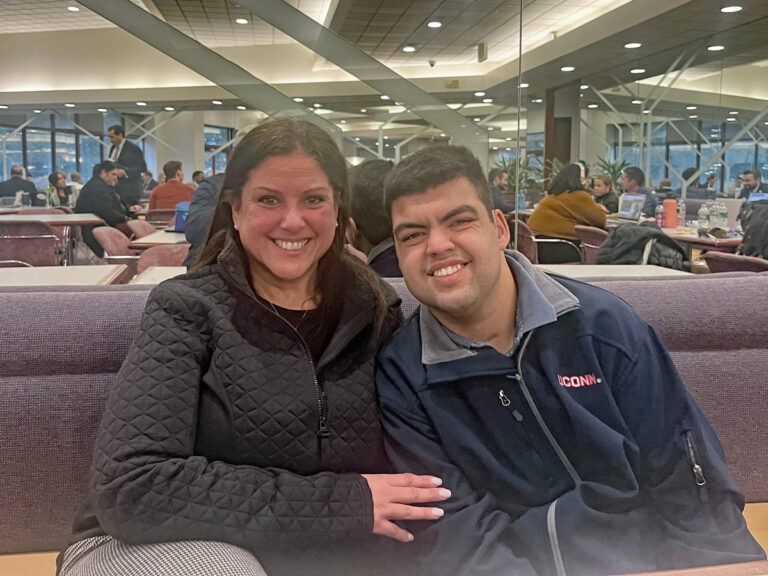
Advocates and educators testified Wednesday before the Education Committee in favor of a bill that would raise wages and increase healthcare subsidies for paraeducators in Connecticut.
House Bill 5348 would provide a re-up – using funds from the American Rescue Plan Act – for a group of 4,200 paraeducators who were placed in a high-deductible health insurance plan last year. It would also subsidize healthcare for an additional group of about 2,200 who were not added to any state-funded health insurance plan. The bill also calls for an hourly wage increase for paras – their average wage is currently a little over $16 – which was recently raised from $15.03.
State Comptroller Sean Scanlon was the first to testify at the public hearing, and shared his and his office’s support for paraeducators in the state.

“Paraeducators, as everybody knows, are the lowest-paid workers in our state doing the hardest jobs in our state,” Scanlon said Wednesday. “What we’re hoping to do here is help every single para – who is offered health insurance by their district – with some form of a subsidy.”
According to Scanlon, there are roughly four groups of paras in the state, regarding health insurance:
- 4,200 receive high deductible healthcare plans from their employer (those are the people who received assistance last year);
- 2,200 are offered healthcare from their employer, but are on traditional copay plans (Scanlon said he and his office want to help those additional paras this year);
- Paraeducators who are offered health insurance by their employer but don’t accept it (either because they are on another person’s insurance, or cannot afford it), and;
- 1,200 who are not offered health insurance by their employer.
According to an estimate from CSEA SEIU Local 2001 – a union that is representing and advocating for paras in Connecticut – there are currently about 12,500 paraeducators in the state.
Paraeducators also testified in support of the bill, and said they need the legislation to make ends meet. But, school administrators and superintendents around the state are skeptical.
Vicky Ceylan has worked as a para for 20 years and is a member of the CSEA SEIU Local 2001. She said many paras in the state are leaving their jobs, or considering leaving their jobs, because they are not being paid enough, and are not receiving adequate health insurance.
“If this doesn’t pass, this is not going to get better, it’s going to get worse,” Ceylan said. “And then what’s going to happen to the ones that are left? We are going to get burnt out.”
Ceylan said the predecessor to HB 5348, which was passed last year, gave the 4,200 eligible paras in the state about $890 after taxes to help pay for health insurance. Still, Ceylan said, that number is nowhere near enough because of the amount they have to pay out of pocket.
“You have many paras who are single mothers, or single fathers,” Ceylan said. “And there are some people who say ‘I can’t go to the doctor because I can’t afford the copay.’”
Ceylan’s son, AJ, suffered a stroke at birth and was diagnosed with cerebral palsy at the age of two (the earliest possible age for diagnosis). He got his undergraduate degree from the University of Connecticut in May 2023 and was recently accepted into the West Virginia University school of medicine.
Paraeducators, AJ said, are a monumental part of how he’s been successful despite his disability.
“They helped me with basic life functions,” AJ said. “They helped me advocate for myself – they really helped make me who I am today.”
Some administrators from towns and schools around Connecticut said that certain requirements in the bill could fall hard on some school districts.
Betsy Gara, who is the executive director of the Council of Small Towns, said in a written testimony that some of Connecticut’s small towns already struggle to fund education and this bill would add significant costs.
“Given rising inflation and flat or reduced municipal aid for many small towns, we are concerned that the bill will force steep increases in property taxes or deep cuts in other critical programs and services,” she wrote.
Thomas Baird, who is the Superintendent of Schools in Hebron, said in a written testimony that while he supports the intent of the bill, and many of its components, he has concerns about a minimum required salary for paraeducators.
Paraeducators are not salaried, but paid an hourly wage, Baird wrote. That rate is usually determined by collective bargaining within the district in which the paras work. That structure, according to Baird, allows many paras to receive a competitive wage because of a market need for their services.
There is support for the bill in the Education Committee.
Sen. Doug McCrory, who co-chairs the Education Committee, said during the hearing Wednesday that he was grateful for the work Scanlon and his office have already done to support paraeducators in the state.
“They do a great deal of work in our schools. Many times our schools and our students cannot function without them [paraeducators],” McCrory said.
There is no fiscal note on the bill yet, so it is unclear how much ARPA funding supporters of the bill are seeking for healthcare subsidies.


